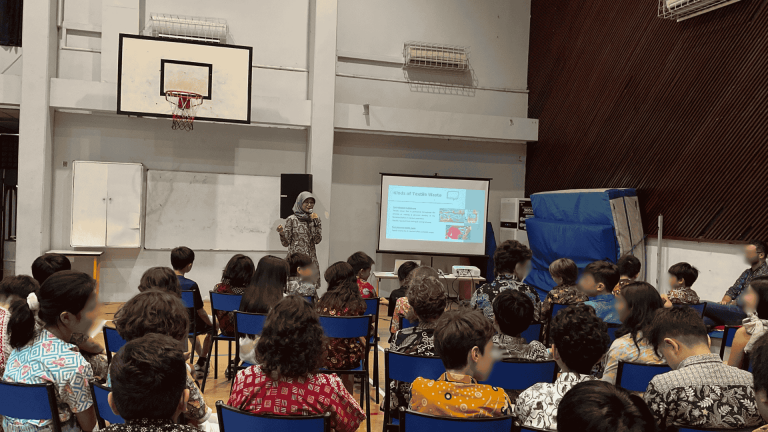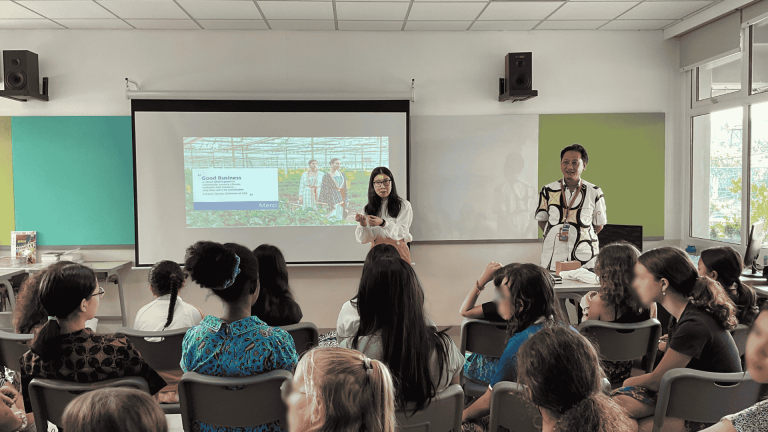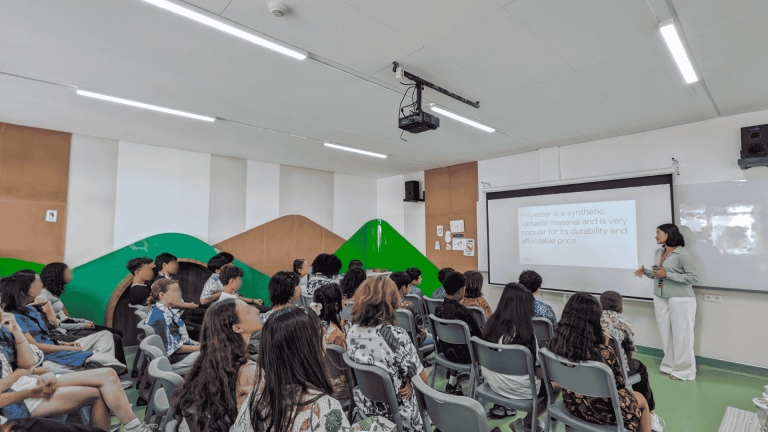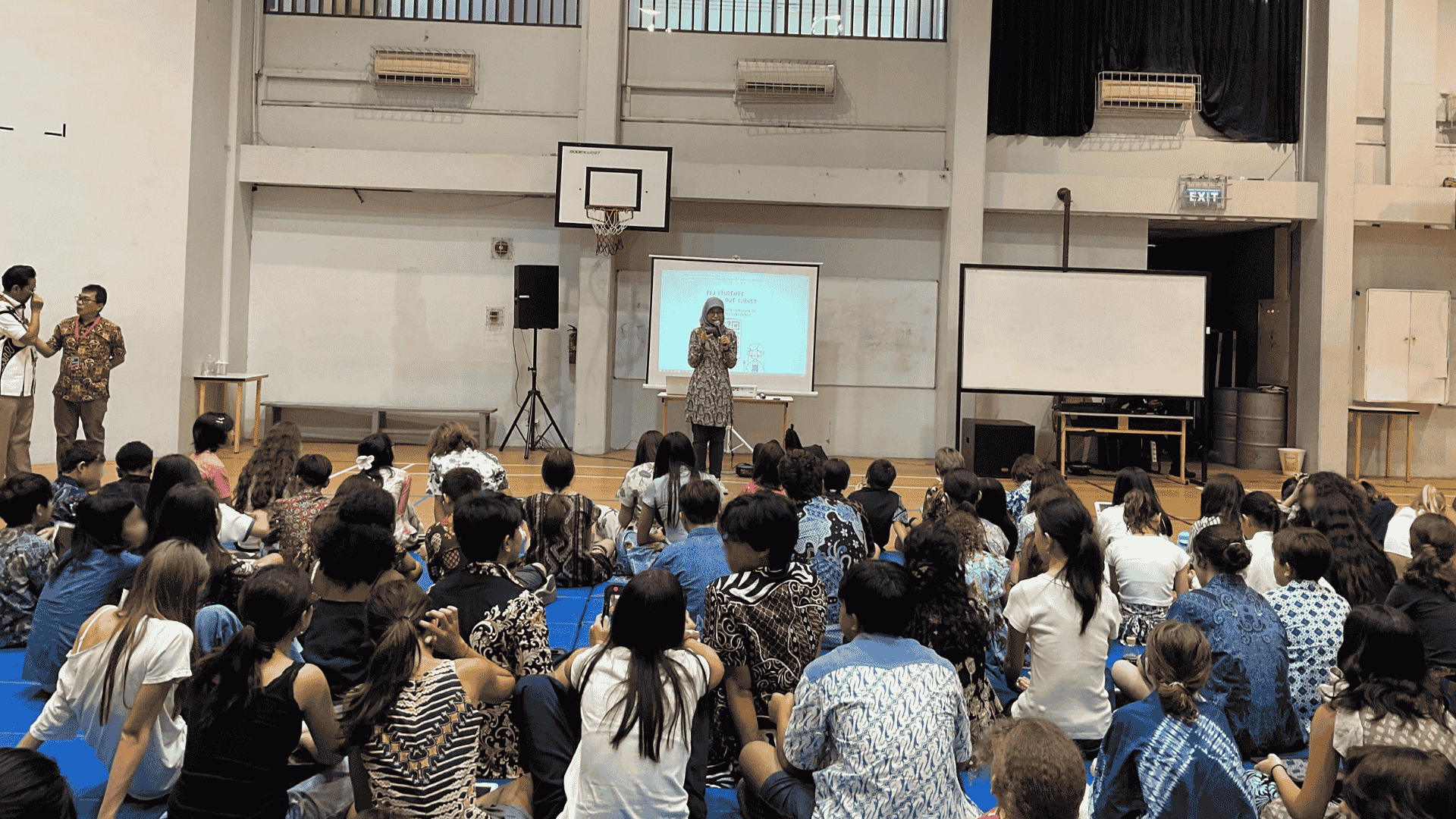Who says fashion can’t save the planet?
This bold question became the spirit of Rantai Tekstil Lestari (RTL) as we celebrated Hari Batik Nasional on October 2nd with over 200 students from French School Jakarta (FSJ).
In a collaborative, hands-on learning session, 121 junior high and 87 high school students took a deep dive into the world of textiles—exploring how their clothes are made, what materials they’re made from, and why sustainable fashion matters.
Three Immersive Learning Workshops
The event featured three interactive workshops, each led by professionals who are shaping Indonesia’s textile sustainability landscape:

🔁 Textile Recycling with Kak Ola from H&M Indonesia
Students discovered the lifecycle of textile waste in Indonesia, learned about different recycling methods, and explored the challenges and opportunities in creating a circular textile ecosystem.

🌿 Sustainable Viscose Production with Kak Novi from APR
An eye-opening introduction to rayon/viscose, this session explained how APR is producing viscose more sustainably—with integrated plantations and a 2030 sustainability vision. For many students, this was their first time learning about viscose as a material!

♻️ Recycled & Biodegradable Polyester with Kak Ezra from APF
This session highlighted polyester’s prevalence in daily life and how APF is innovating with biodegradable and recycled PET bottle-based polyester. Students left with a better understanding of both the environmental impact and the possibilities for cleaner solutions.
"This initiative is just one example of how RTL works to bridge industry knowledge with youth education—nurturing curiosity, awareness, and critical thinking about the fashion system."
Djarot Handoko, RTL Board members
Education as a Catalyst for Sustainable Change
"I was keen for my classmates to truly grasp the environmental impact of fast fashion. While I had some prior knowledge, it was genuinely eye-opening to discover that less than 1% of polyester is recycled–especially when I always assumed it would be easier, being the same material as plastics. It also filled me with pride to learn that Indonesia is home to one of the largest viscose productions. This experience truly reinforced that while the material itself is crucial, we absolutely cannot overlook the well-being of the workforce behind it."
Laura, 11th grade Student of french school Jakarta
As future changemakers, FSJ students were encouraged to adopt a more mindful, informed, and appreciative approach toward fashion consumption. RTL believes that early education on sustainability is key to building a resilient and responsible generation.
Stay tuned for more RTL initiatives designed to empower a sustainable textile future—one workshop, one conversation, one student at a time.


